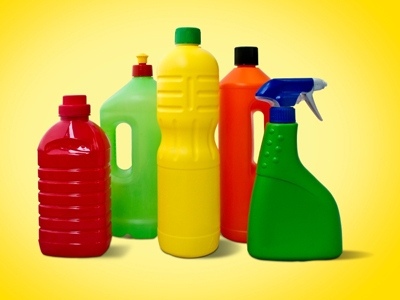7 million people are accidentally injured in their homes every year and over 25,000 are killed. By taking some simple precautions, you can avoid nearly all of these hazards. Did you know…
- Falls (kill about 8,200 each year)
- Poisoning (kills about 8,200 each year)
- Fires (kill about 2,900 each year)
- Choking (kills about 1,500 each year)
- Drowning (in bathtubs and home swimming pools) (kills about 900 each year)
- Gun accidents (kill about 800 each year)
- Suffocation (kills about 600 each year)
Electricity is another household hazard. People can become electrocuted from computers, lights, air conditioners, TVs, vacuum cleaners, telephones, appliances, power tools, hair dryers, etc. Some safety tips include:
- NEVER plug in anything electrical with wet hands or if you are standing on a wet surface.
- Be careful of appliances near sinks and bathtubs. If an appliance (such as a hair dryer, electric curling iron, etc.) were to fall in water – unplug the appliance first before retrieving it.
- Avoid using power tools in the rain.
- Check to make sure the power cords are in good shape. No breaks or fraying.
- Do not plug too many items into the same power outlet.
- DO NOT touch a person who is in contact with a power source as the electricity can flow from them to you.
Falls – Next to highway accidents, falls cause the most accidental deaths and they are the leading cause of death among the elderly. The easiest way to avoid falls is to simply watch your step. Common causes of falls include spilled water, grease or other liquids, small rugs or mats that slip, dimly lit stairs, hallways and sidewalks.
Fires and burns – are the fifth leading causes of accidental deaths in the United States and 90% of those occur in the home. To help prevent fires, make sure all stove burners are off and when on, are not turned up too high. Use a tick potholder when handling hot items. Be careful removing items from microwave ovens. Never leave food cooking on top of a stove unattended. Use a splatter guard when cooking items in grease or that are greasy.
The majority of home fires occur at night when people are sleeping. It is important to have working fire detectors to alert the entire household. Before opening a door, check the door knob to see if it is hot. If it is hot – DO NOT open the door. Have a designating meeting area outside of the house where family members can gather.
Poisoning is the leading cause of death in children under the age of 5. Keep all chemicals out of the reach of children.
That’s quite a long list of household hazards. Knowing these statistics, however, can help you to safeguard your own home. Check out the following ten questions and see how much you have learned about household hazards.








